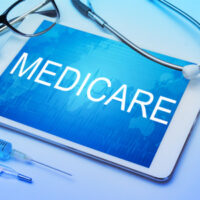Using Medicare Or Medicaid Coverage After A Florida Auto Accident

Auto accidents are depressingly common on Florida roads, and too often lead to serious injury. Florida is a no-fault insurance state, meaning that every driver should, at least in theory, have a certain amount of personal injury protection (PIP) insurance coverage to rely on after a car accident. In addition, if you are a Medicare or Medicaid recipient, you may assume that it will contribute to your medical bills as well. However, this is not always the case – and if they do, you may wind up having to reimburse the program once you are recovered. This can be a very rude awakening for many, so it is crucial that you understand how Medicare and Medicaid work after a crash.
Secondary Payers
If you are involved in a car accident and sustain injuries, the general rule is that no-fault insurance must be used first in paying any kind of bills. Florida’s no-fault laws hold that every driver with a vehicle registered in Florida must carry at least $10,000 in PIP coverage, and $10,000 in property damage liability (PDL) coverage, and it is this coverage that will be touched first in the event of medical bills. It will not cover every part of a person’s treatment, however – Florida law requires that PIP insurance cover only 80 percent of “reasonable” expenses for “medically necessary” care.
Medicare and Medicaid are what are called secondary payers, who will generally help to contribute toward medical care after PIP coverage and other insurance (health insurance policies, for example) have been exhausted. Generally, Medicare will contribute before Medicaid, though every case is different. Medicare in particular is more inclined to make what are called conditional payments – paying only after your insurer has not paid within 120 days, and quickly establishing a lien on any damages or payment that you might receive so that it can be repaid.
Medical Liens
The most pernicious fact about using Medicare or Medicaid to help pay for medical care after an auto accident is that both will expect to be paid back out of a personal injury settlement, or out of one’s own insurance funds or even one’s own pocket in some situations. Too many people are unaware that they must repay Medicare and Medicaid funds used to help them heal – while there are defenses one can use to help avoid some of that debt if necessary, debts can ultimately become the jurisdiction of the Department of the Treasury if they are not paid.
If you are recovering from serious injuries and are having to deal with Medicaid’s ‘conditional payments,’ though, be aware that Medicaid is usually the last to pay bills, which means it usually only covers a fraction of your expenses. However, this also means that Medicaid’s lien, if one exists, will be one of the last that you have to deal with. Given the way the law is structured, Medicaid sometimes does not receive full repayment (or even partial) repayment, but this is not always the case.
Call A Tampa Auto Accident Lawyer
Dealing with Medicare, Medicaid and their rules and recovery criteria can be unbelievably complex and time-consuming, and if you have been severely injured, it can feel too overwhelming to handle on your own. The Tampa car accident attorneys at the Rinaldo Law Group can help you figure out how to handle these issues while offering a compassionate and understanding ear. Call our offices today for a free consultation.
Resource:
flhsmv.gov/insurance/
https://www.tampainjuryaccidentlaw.com/broken-bones-in-florida-accidents/












